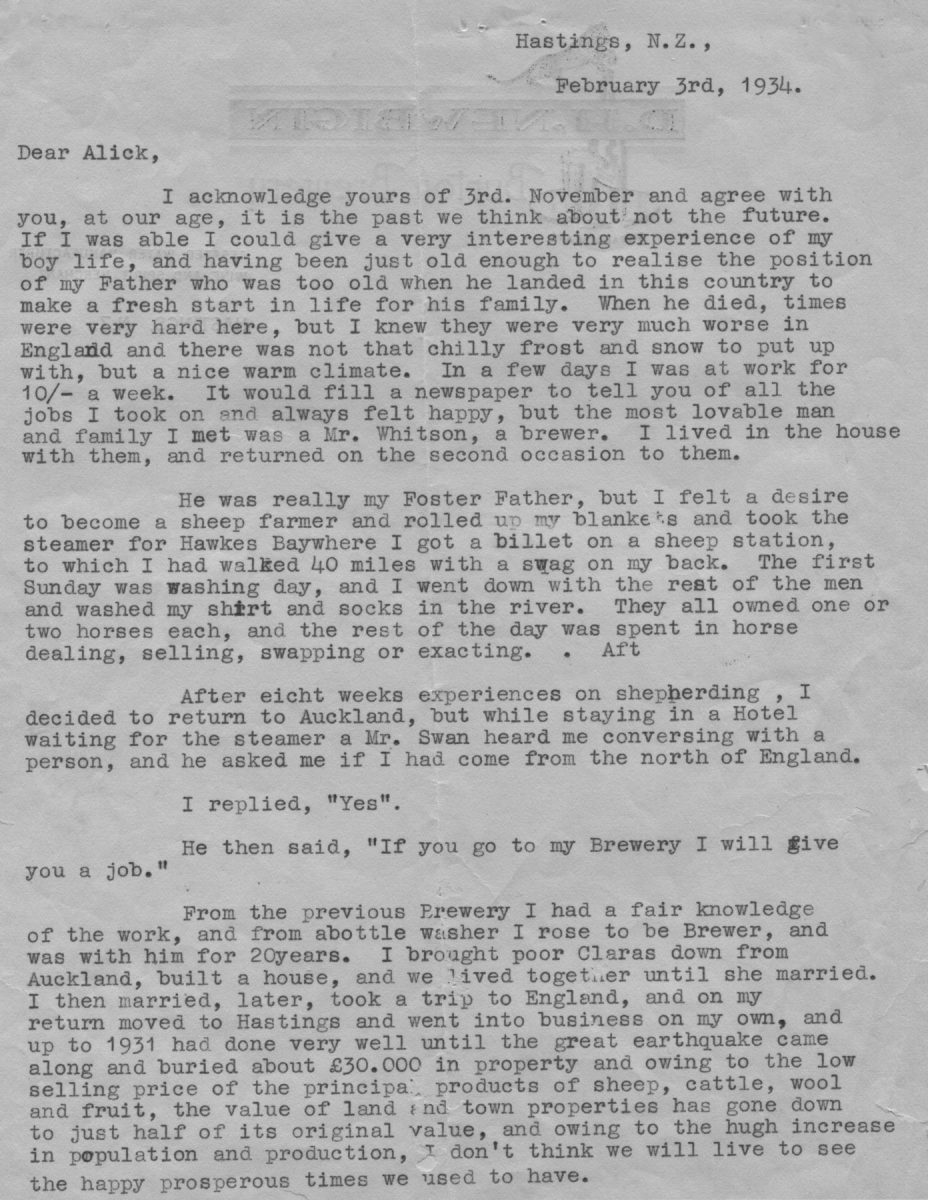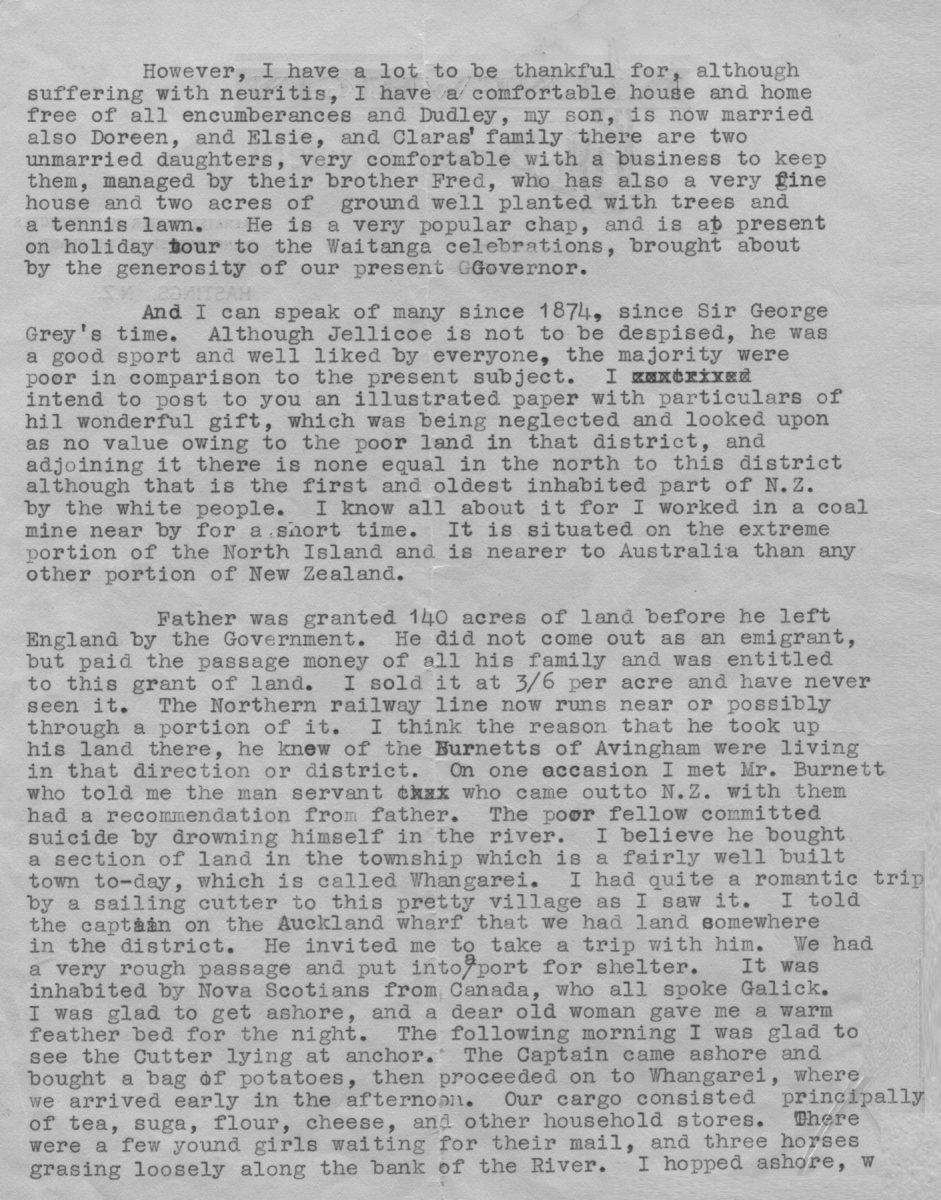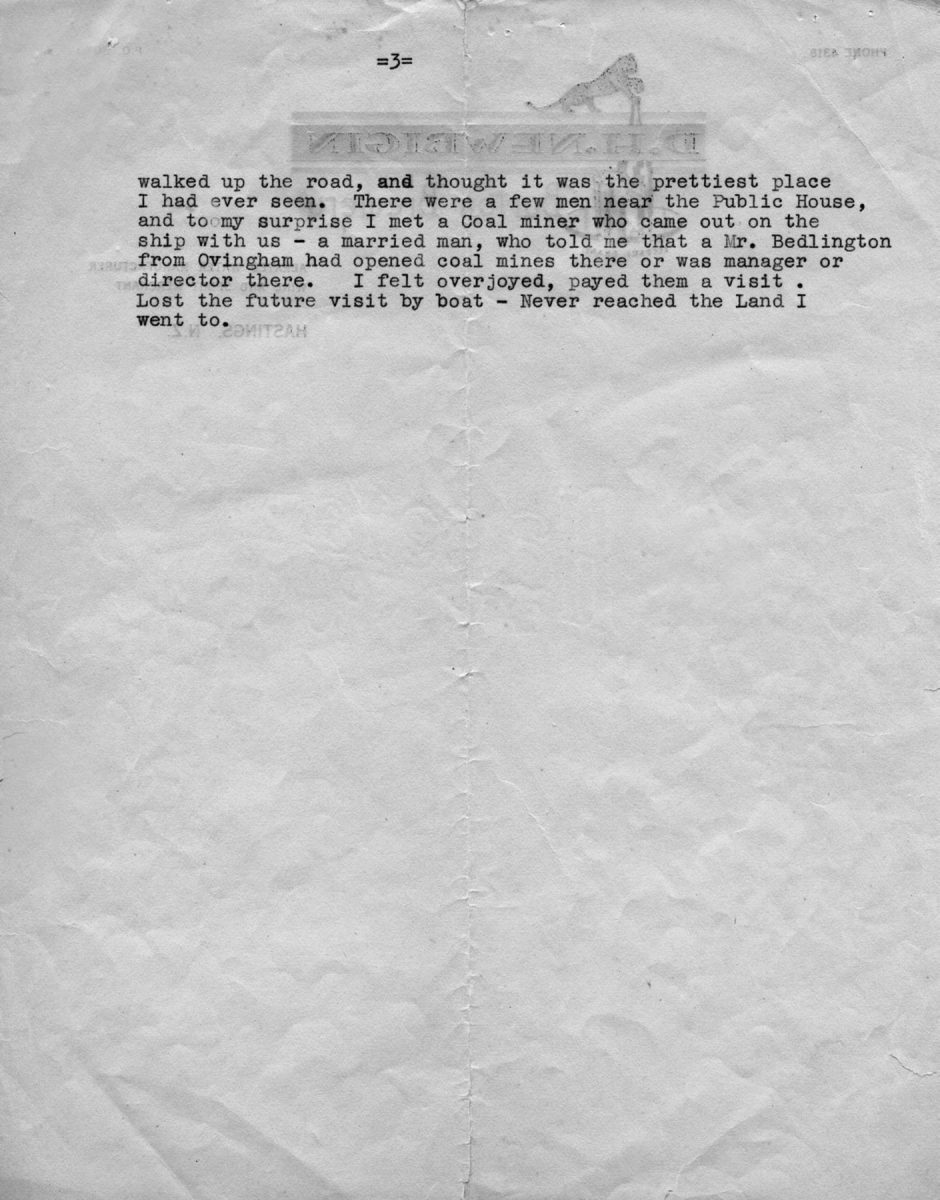Hastings, N.Z.,
February 3rd, 1934
Dear Alick,
I acknowledge yours of 3rd. November and agree with you, at our age, it is the past we think about not the future. If I was able I could give a very interesting experience of my boy life, and having been just old enough to realise the position of my Father who was too old when he landed in this country to make a fresh start in life for his family. When he died, times were very hard here, but I knew they were very much worse in England and there was not that chilly frost and snow to put up with, but a nice warm climate. In a few days I was at work for 10/- a week. It would fill a newspaper to tell you of all the jobs I took on and always felt happy, but the most lovable man and family I met was a Mr. Whitson, a brewer. I lived in the house with them, and returned on the second occasion to them.
He was really my Foster Father, but I felt a desire to become a sheep farmer and rolled up my blankets and took the steamer for Hawkes Bay where I got a billet on a sheep station, to which I had walked 40 miles with a swag on my back. The first Sunday was washing day, and I went down with the rest of the men and washed my shirt and socks in the river. They all owned one or two horses each, and the rest of the day was spent in horse dealing, selling, swapping or exacting.. Aft
After eicht [eight] weeks experiences on shepherding, I decided to return to Auckland, but while staying in a Hotel waiting for the steamer a Mr. Swan heard me conversing with a person, and he asked me if I had come from the north of England.
I replied, “Yes“.
He then said, “If you go to my Brewery I will give you a job.”
From the previous Brewery I had a fair knowledge of the work, and from abottle washer I rose to be Brewer, and was with him for 20years. I brought poor Claras down from Auckland, built a house, and we lived together until she married. I then married, later, took a trip to England, and on my return moved to Hastings and went into business on my own, and up to 1931 had done very well until the great earthquake came along and buried about £30.000 in property and owing to the low selling price of the principal products of sheep, cattle, wool and fruit, the value of land and town properties has gone down to just half of its original value, and owing to the hugh [huge] increase in population and production, I don’t think we will live to see the happy prosperous times we used to have.














Do you know something about this record?
Please note we cannot verify the accuracy of any information posted by the community.